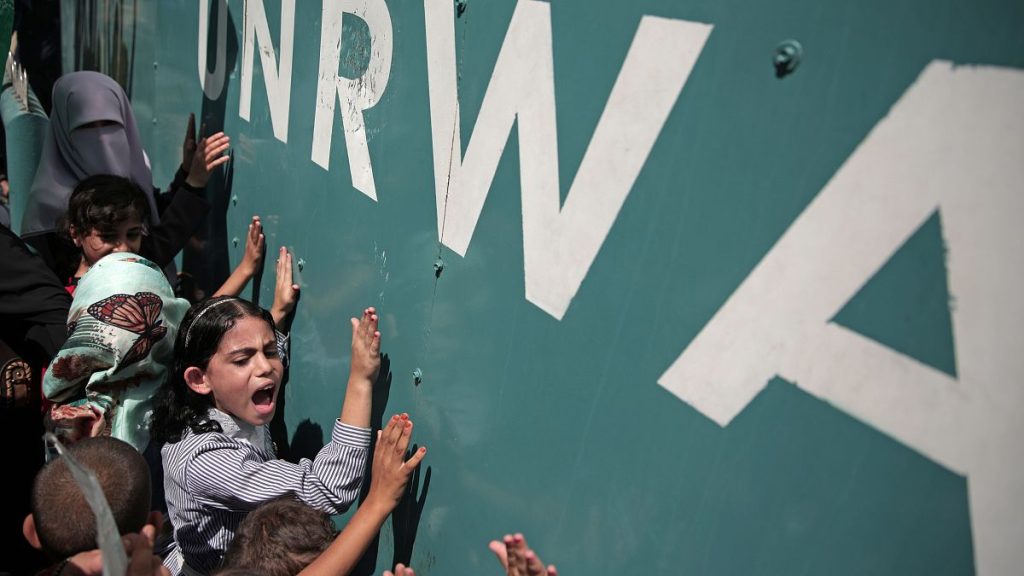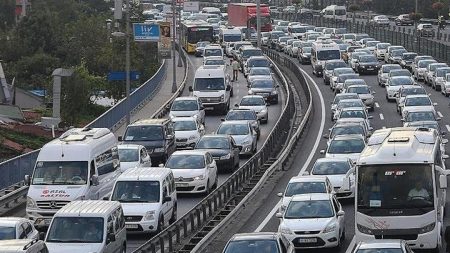The United Nations Relief and Works Agency (UNRWA) has been providing humanitarian aid and services to Palestinians in occupied territories and Palestinian refugees in other countries since 1949. Recently, the European Union warned of potential “disastrous consequences” if Israel’s parliament were to pass a bill outlawing UNRWA from operating in Israel. EU Foreign Policy chief Josep Borrell expressed deep concern over the possible impact on Gaza’s residents if the draft legislation were approved, emphasizing the essential services being provided by UNRWA in the region. UNRWA operates in Gaza, the West Bank, East Jerusalem, Lebanon, Syria, and Jordan, playing a crucial role in regional stability according to Borrell.
The Israeli parliamentary committee approved a bill that would ban UNRWA from operating in Israeli territory and sever official contact between the Israeli government and the UN agency. Israel has been lobbying against UNRWA’s work for years, alleging ties to terrorist groups. Israel made claims earlier this year that some UNRWA staff were involved in a Hamas attack in southern Israel in October of the previous year, which led to a suspension of funding from international donors. Several European countries froze payments to UNRWA, while Ireland and Norway continued their support. The US State Department confirmed the Israeli allegations related to 12 UNRWA employees.
In response to the Israeli allegations, the UN conducted an investigation that resulted in the dismissal of nine UNRWA staff members. Following this action, most donors reinstated their funding to the humanitarian agency. UNRWA has been integral in ensuring life-saving aid reaches the population of Gaza, with donors recognizing the importance of its work in the region. Borrell stressed the EU’s support for the United Nations and the multilateral global governance system, of which UNRWA is a part, urging Israeli authorities to allow the agency to continue its vital services in accordance with its UN General Assembly mandate. UNRWA’s efforts have been crucial in providing essential services to millions of Palestinians across various regions, despite facing challenges and criticism from Israel.
The dispute over UNRWA’s operations in Israel reflects a broader issue of conflicting narratives and security concerns in the region. The allegations made by Israel against UNRWA staff have created divisions among international donors, with some countries suspending financial support while others continue to fund the agency’s work. The situation underscores the complexity of providing humanitarian aid in conflict zones and the challenges faced by organizations like UNRWA in navigating political tensions and allegations of misconduct. The EU’s warning of “disastrous consequences” highlights the potential impact on vulnerable populations if essential services provided by UNRWA are disrupted, emphasizing the need for continued support and cooperation to address the humanitarian crisis in the region.
In the midst of political tensions and security concerns, UNRWA remains committed to its mission of delivering humanitarian aid and services to Palestinians in need. The agency plays a vital role in addressing the humanitarian crisis in occupied territories and supporting Palestinian refugees in other countries, contributing to regional stability and security. The allegations made against UNRWA staff have raised questions about the agency’s operations and accountability, leading to a suspension of funding from some international donors. However, the reinstatement of funding by most donors following the UN’s investigation demonstrates a recognition of UNRWA’s importance in providing life-saving aid to vulnerable populations.
Moving forward, it is essential for all parties involved to engage in constructive dialogue and cooperation to address the underlying issues and concerns related to UNRWA’s operations in the region. Efforts should be made to ensure transparency, accountability, and adherence to international law in the delivery of humanitarian aid, while also taking into consideration the security concerns and complexities of the situation on the ground. The support of international donors, including the European Union and individual countries, is critical in enabling UNRWA to continue its lifesaving work and fulfill its mandate to assist Palestinian refugees and vulnerable populations. By working together and upholding humanitarian principles, progress can be made in alleviating the suffering of those affected by conflict and displacement in the region.















